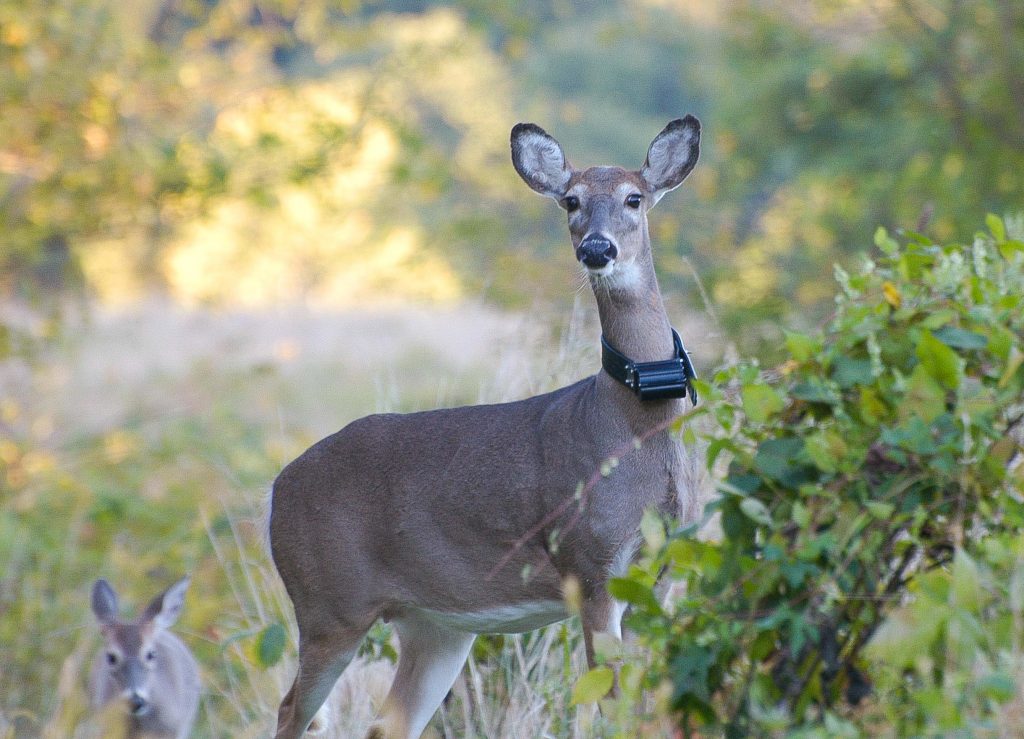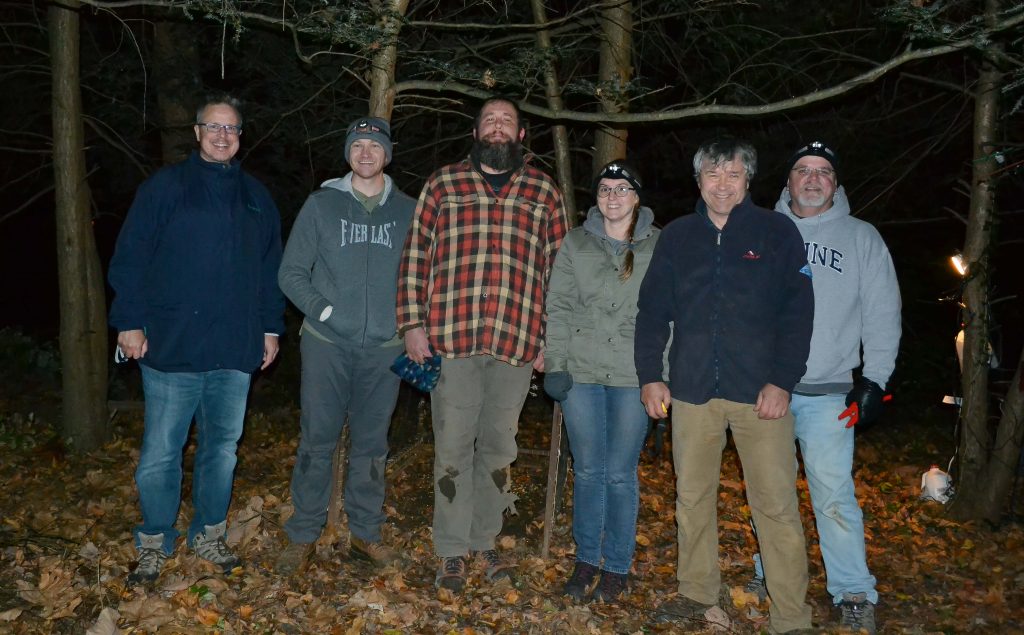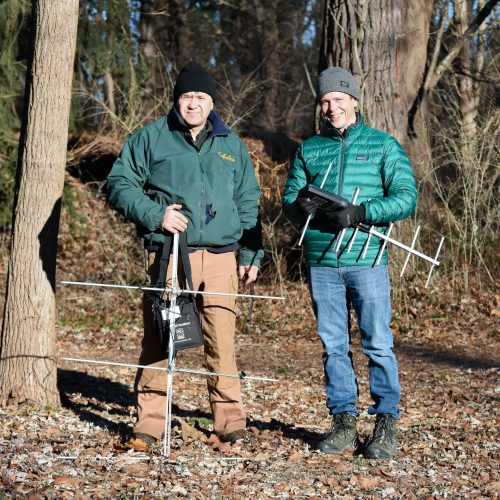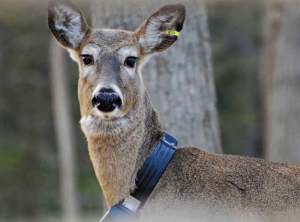White-tailed deer (Odocoileus virginianus) are abundant in PERT lands and the surrounding suburbs where they are a familiar sight. However, much of their activity is actually hidden from us by twilight and forest, and the factors that influence their behavior and movements have not been fully understood. To address these questions, Bryn Athyn College (BAC) and PERT began a collaboration in 2006 to track and analyze deer movement. Dr. Eugene Potapov of BAC is the principal investigator, leading a dynamic team of BAC faculty, students, and PERT employees. The general design of the Deer Study is very straight-forward: deer are fitted with special collars* that send out time-stamped GPS fixes, providing researchers with high resolution trajectories of each study animal through time and space. These records can then be used either on their own or in tandem with additional data to address a range of hypotheses about deer movement and behavior.



One of the Deer Study’s most compelling sub-studies addresses when and where deer cross roads, and whether patterns of road crossing aligned with hotspots of deer-vehicle collisions. Other factors impacting deer movement that have previously and are currently being explored include:
- deer gender and reproductive cycles
- proximity to hunting structures
- trail usage by hikers, bikers, dog walkers and maintenance vehicles
- habitat restoration and land management, and the absence of such practices
- baseline and momentary noise levels
- weather conditions such as wind, snow, and humidity
- presence or absence of moonlight
- visibility through vegetation in different seasons
The Deer Study team has presented its findings annually at regional and national scientific conferences since 2008 and has published its discoveries in multiple peer-reviewed journals. Visit the BAC Deer Study page for more details on the study design, its publications and presentations, and how BAC uses the Deer Study as a teaching tool to help students learn about, and gain an appreciation for, nature and scientific research.
This research is supported by the Grant Doering Research and Study Trust, an endowed fund established specifically to foster cooperative research between PERT and BAC. PERT and BAC have also provided additional support for the project.
*The Pennsylvania Game Commission has issued special permits that allow researchers to fit deer with GPS collars. Collaring is performed in a safe, controlled manner that in no way harms the study animals.

